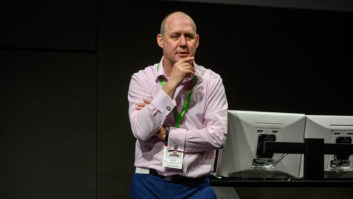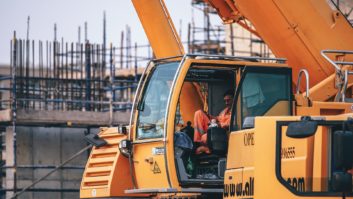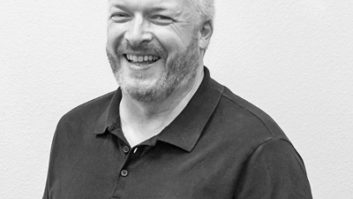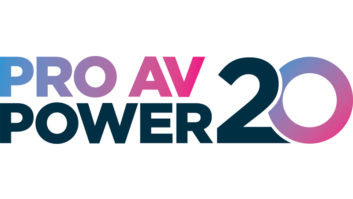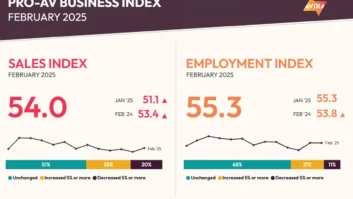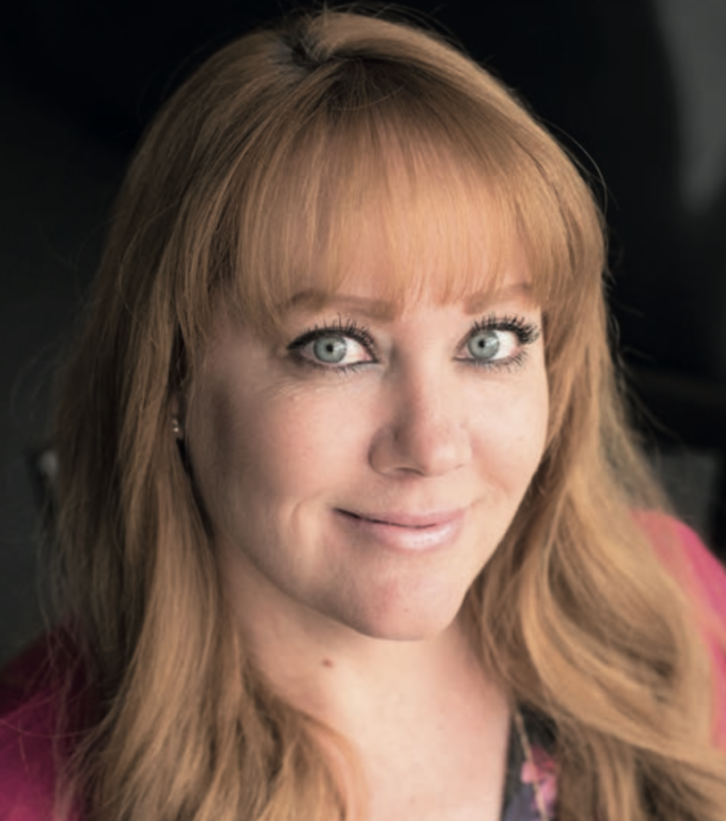
Back in June, Installation revealed its first ever Pro AV Power 20 list, rounding up the most inspiring and influential figures from across the AV and installation market. To get to know them a little better, we sat down with each of our Pro AV Power 20 inductees for an in-depth chat. Here, we meet Samantha Ventura, VP of education and training, CEDIA…
How did you first get involved in the AV marketplace?
Interestingly, I was first interested in the topic of automation, but more for the CS world. I had someone ask me a question about automating the lighting for a large school in CA. I did a little digging and was immediately hooked and wanted to know more in general, but from the connected home or building mindset. As I started to go down the rabbit hole of ‘all things automated’, I found myself wanting to know more about how automation was supporting connectivity, and how eradicating manual processes could actually enhance the overall user experience, and for AV especially, how this could be transformational in the home, but also for remote or virtual learning in a classroom situation. This is where my own background with education intersected clearly with what I now do for CEDIA.
What would you say are the most significant changes/ developments to have taken place in the industry during your time?
The industry is constantly evolving, but not just from a technological perspective. Attitudes, perceptions, thoughts and opinions on topics in general, can shift on a dime. Look at the topic of privacy. I absolutely believe to stay current and relevant in our industry you have to be willing to consistently be on top of the laws, the ever-changing requirements and real- time information, that is hitting us constantly. The clients those in our industry work with deserve to have the holistic knowledge presented to them to make informed decisions, at all times… even if we are still learning ourselves. This could not be more true right now during the ‘days of Covid- 19’.
How many of us are now using video conferencing, even with our own medical professionals? AV needs to be well integrated within the overall system being used, but when questioned about the data or information being shared virtually, integrators need to be well versed in the many other areas surrounding innovative technology. Our industry is not just about the flash and excitement of the newest technology; that will always be a big part of it but that has evolved into so much more. The technology we work with is impacting lives now on such a real level. Aging in place, digital health, the topics of AI, biophilia and wellness, and even drones are all definitely having their moment. But again, all of the topics as they evolve are not stagnant. The more you follow them and learn about them, the more you realise there is a transformational architecture happening that is reliant upon a full understanding of the AV infrastructure from start to finish.
You may also be interested in:
- Meet the Pro AV Power 20: Carys Green (No.20)
- Meet the Pro AV Power 20: Paul Clark (No. 19)
- Meet the Pro AV Power 20: Tobias lang (No.18)
- Meet the Pro AV Power 20: Andy Dyson (No.17)
- Meet the Pro AV Power 20: Aidan Williams (No.16)
- Meet the Pro AV Power 20: Kevin McLoughlin (No.15)
- Meet the Pro AV Power 20: Jon Sidwick (No.14)
- Meet the Pro AV Power 20: Brandy Alvarado (No.13)
What personal and professional achievements are you most proud of?
I am very proud of my own evolution in the area of education. Learning is a constant for me and I enjoy it. I like to take things apart and see how they work, and even sometimes, don’t work; the same could be said for the challenges I experience. I am so proud of the education team at CEDIA. In two years, we have accomplished more than I have at any other organisation.
I am also deeply proud of my children; they understand their place in this world and the impacts they can and do have. My world view expands every day because of the relationships I have, and get to constantly develop through my work at CEDIA. I am proud of my commitment to diversifying the education CEDIA offers, and bringing it to people who may never have considered our industry for their own career pathway. We get to bring happiness to people every day… I’m proud of that.
Do you have a philosophy that you live by professionally?
Treat others how you would want to be treated. This has helped me remember that my view is not always the ‘right’ one and if you make a mistake, own it.
Prior to the outbreak of the global pandemic, what would you say were the biggest areas of technological or operational challenge for the AV industry?
There were quite a few challenges pre-Covid 19. Finding quality people is always a challenge, especially now where a deeper technical knowledge is going to be needed as home integration constantly evolves; knowing how to successfully scale to where generating RMR is possible as opposed to strictly being project based, and even understanding technology now from a holistic viewpoint – there are so many other facets now related to privacy, legalities, requirements – this can be very scary for someone in our industry. All of these touch on education. An integrator must be willing to invest in herself/himself, and the others who work with them, to stay current, relevant, and safe on a job site.
What impact has the pandemic had on your business, and what do you think will be the longer-term impact of this extraordinary period on our sector?
Well, work certainly didn’t slow down… it became about 50 per cent more difficult. We didn’t take things off our plates, we only added more. But this was in response to what we at CEDIA felt our members needed at this very difficult time. This is going to create huge waves of change for how we deliver education, and how we remain competitive.
We have had to adapt to virtual learning throughout the last decade, and over the past two months, we have had to put it into fast forward for our members. The cost savings piece of this will be the biggest factor driving many organisations to move towards more remote and virtual work.
For the integrator, this is going to mean looking for the trends that will support that happening successfully for someone, whether at work or in their homes. It might mean focusing on something that might have been viewed by some as a niche trend before but is now significant to someone’s well- being. Wellness, being able to decompress at home, learning how to make real dedicated work spaces in the home, are all areas that are going to need to be addressed throughout this year, and the next few as well. We are going to see a shift in what people spend their money on; home for many will become the nucleus of where they do everything, they are going to need it to be functional, comfortable, and clearly defined as to where they do what, so that they can shut off without feeling guilty about not working. Mental health matters.
What needs to change in the industry? What do we as a community need to get better at?
We have a tendency to be a bit exclusive at times. Yet, we only get stronger when we get stronger together. There is a real competition that happens every day in this industry, and it’s not just about the money. However, there is a place for people to lead by example, showcase talent through work and best practices, and support the industry by giving back through knowledge, presentations, sharing work ideas, and in so many other ways as well. If you are a business owner: invest in the knowledge and well-being of your employees! Turnover is tough on businesses. Good leadership will allow for foundational success for any organisation. Stay ahead of trends and remain knowledgeable and relevant; this sets the bar higher for everyone in the industry.
In your opinion, what will be the biggest driver(s) of change for the AV market in the next five years?
The world is connecting now more than ever before. Technology needs to be able to keep up with the expectations of that connection. The user experience and the demands of the people investing in AV products are going to be huge focuses. I see audiovisual communications being a major focus; videoconferencing being easier, more user friendly and supporting less ‘online fatigue’ will be huge.
Interactivity in general will drive people in the AV market to continue their quest for knowledge in terms of remaining competitive and relevant. It is so much more than installation; it’s about the entire process now and knowing how to keep things user friendly, reliable, modern, and in many cases, eco- friendly. All of these are going to be huge drivers for people to continue to educate and innovate, and much more often than ever before.
Finally, what would be your message to those starting out their careers in the AV community?
This is such an exciting industry. You get to be a huge part in how people experience their everyday lives, both at work and at home. Keep learning, and strive to be a thought leader in an area that resonates with you, and then be open and willing to share your time and talent with others coming into the industry. Always work with the idea that we as an industry are made stronger, together, and be inclusive of others in the work that you do and the knowledge you share.
PROFILE
Samantha Ventura currently serves as the vice president of education and training at CEDIA. Ventura directs, manages, and provides global leadership in all instructional and academic systems within CEDIA’s education programmes. She also plans, develops, and oversees the curriculum development and certification programmes, and promotes and supports the creation of innovative and diverse class offerings, as well as the evaluation and assessment of the education offered by CEDIA.
While at CEDIA, Ventura has overseen the redesign of classes being offered online in a new Learning Management System, “The Academy”, the move for classes to be localised for the EMEA region, the translation of many classes into Spanish, and was instrumental in creating the hybrid version of the popular CEDIA Outreach Instructor class. She also sits on the Professional Development Advisory Council (PDAC), and oversees many working groups at CEDIA.
QUICKFIRE ROUND
Who’s had the greatest influence on your career?
My mother, Shelley Farrell. Throughout every phase of my life she supported my education, and my professional pursuits. She is the reason I have been able to pivot into a variety of industries with my core philosophy never wavering; when you can successfully educate in one industry, you will always be able to successfully transition into another.
Who did/do you look up to as a role model professionally?
My lifelong mentor, Dr Brian Bennett. “Make your life and your work have purpose and you can and will be able to push for change where it is most needed.”
How do you measure success?
Personally: my children being kind, successful, and happy. Professionally: when people come back and tell me their lives were changed for the better after attending a class I taught, or a conference I spoke at, or a course pathway I designed.
What’s your biggest professional regret?
My first decade as an educator, not understanding the significance of reflecting first, then making decisions second. I would have been much more thoughtful about my approach in eliciting change where I thought it was needed.
If you were a teenager today, what profession would you go into?
Education! I love everything about education and learning. I have worked as a teacher, professor, administrator, executive, consultant, coach, and just about everything else in between. I wanted to be a teacher from the time I was six years old and it never wavered or changed.

